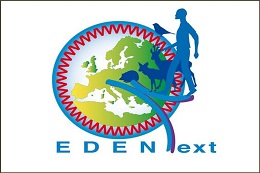EDENext – Biology and Control of Vector-Borne Infections in Europe
Main Interest |
SINE is involved in three work packages in this network, which consists of 46 partners in 22 countries. Together with the Robert Koch Institute and the Friedrich Loeffler Institute, SINE is working on the area of public health. On the one hand, a white paper on public health in the area of vector-borne infectious diseases is to be formulated. On the other hand, SINE is conducting studies on risk perception and risk communication of vector-borne infectious diseases in five European countries (Albania, Germany, Finland, France and Turkey) as part of the European research project EDENext. The hantavirus and Crimean-Congo hemorrhagic fever are the focus of the empirical analysis due to their high public health relevance.
Central to the study are expert interviews with responsible authorities, such as ministries of health (macro level) and various interest groups (stakeholders) in the countries, such as veterinary and public health associations (meso level). The risk perception of the public (micro level) and the potential use of social media for risk and crisis communication are also included in the study in the form of focus group discussions. Socio-cultural and socio-economic determinants are taken into account as part of a holistic public health approach.
Based on the results, adequate concepts for risk communication will be developed.
SINE-Mandate |
- White paper on public health and vector-borne infectious diseases
- Country comparative expert interviews
- Country comparative focus group discussions at the public level
- Identification of content for adequate risk and crisis communication for both public health institutions and the public
- Formulation of recommendations for action for the EU Commission and public health stakeholders in five individual countries
Methods |
A mix of different methods was applied, including:
- Semi-standardised expert interviews with scientists and political decision makers, public health authorities
- Content analysis of documents
- Conducting of focus group research in five European countries
Results |
The first results of the project were presented at the International Disaster and Risk Conference in Davos (August 26-30, 2012). Deutschlandfunk reports on this in an interview with Dr. Kerstin Dressel (project leader): Hantavirus infections: New record year in Germany (04.09.2012; 16:35)
The results will be available on the www.edenext.eu website once the project has been completed.
Further information on EDENext: www.edenext.eu
For further information please contact: Dr. Kerstin Dressel
Responsible | Dr. Kerstin Dressel (project management), Steffen Schüle



